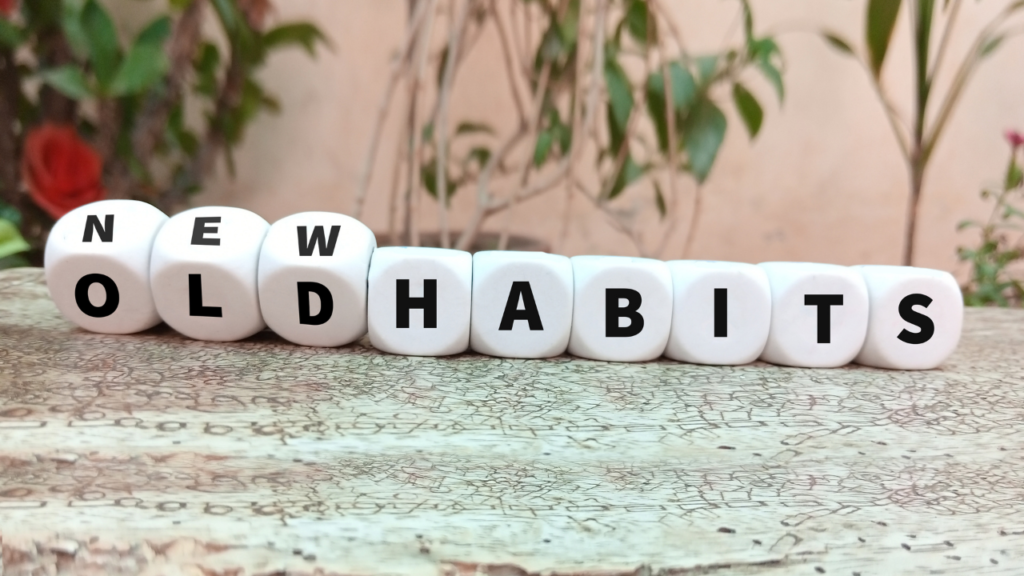Mankind is always prone to certain extraneous ways that are often misleading. Our lives are ruled by the power of free will and therefore we possess the ability to manipulate our lifestyle accordingly. The problem with the power of freedom is that it carries the burden of responsibility along with it. Our ability to choose is the determinant of the life we are going to live ahead. Mankind has always been in the dilemma of choosing the paths that are laid before it by destiny.
Habits comprise certain repetitive practices or doings that one finds hard to give up and are often reinforcing which makes it complicated to give them up. Many people fall prey to habits and those habits run parallel along with their lives till the end. Habits are certainly addictive and therefore can cause a person to give up several other purposeful things for the sake of them.
A good habit is the one in which a person repeatedly performs a task that is resourceful with positive outcomes. On the other hand, bad habits consist of such compulsions that are deteriorative in the long run. An example of a good habit includes a 10 mile run in the morning that becomes necessary for your daily function. In comparison, a bad habit instance is a cigarette you need to smoke immediately after your lunch.
Although it may seem a hard task to do and it often takes a large amount of effort, breaking habits is not as complicated as it looks. The most pivotal prerequisite for breaking a habit is staunch determination and the tendency to compromise. To break a habit from their roots, certain things need to be accomplished. All of those are listed below:
Tips to help you break a bad habit and replace it with a good one:
Alternate Response
The reason why we are addicted to certain habits and find it difficult to give them up is the reinforcement a certain habit provides us with. We often find a specific response by performing a bad habit that motivates us to keep performing it. To change the bad habit into a good one, a person must ensure that the same alternative response is being received. For example, smoking after lunch for digestion can be changed into a 20-minute jog as it provides the same result but in a healthier way.
Elimination
Anything that compels us to perform a certain habit is either motivating or is purposeful to us due to a specific reason. The best thing to do for breaking a bad habit is to break such positive responses so that the motivation is flawed and the tendency to repeat such behaviors is nullified. We must check to see what is causing us to perform the bad habit and once we get a hold of it, immediately cancel the positive response it provides us. For example, drinking too much soda. In order to reduce the amount of carbonated drinks you consume look to sparkling flavored water. Still getting the fizzy drink you craze but a healthier alternative.
Breaking Response Chains
We never perform an activity without any reason. The human mind is entangled within reinforcement contingencies and therefore we tend only to perform those tasks that have seemingly positive effects. It’s at the heart of behaviorism psychology, which states organisms only perform activities if they are reinforcing.
If you want to break a certain habit, identify the precedents that lead you to perform that task and cut them out of your routine. For example, a bad habit of biting your nails or biting them off seems highly inappropriate, particularly in a public setting. The major reason for this is people use it as a coping mechanism for stress. To cut the habit of nail-biting, sublimate your stress into something that seems less inappropriate e.g. using a fidget spinner (an alternate response) that will keep your hands occupied so you won’t be inclined to bite your nails.
Cues and Antecedents
Cues and antecedents are the pre-determinants to a certain behavior. Bad habits are always motivating and positively reinforcing so they are hard to give up. The best way to give up a bad habit is to locate the cues that are always experienced before performing a bad habit. Cues and antecedents, no matter how dainty or minute they are in importance, often provide evidence why we tend to get addicted to certain habits.
A cue to the bad habit of excessive abusive language usage can be aggression or an anxiety trigger. In order to check the reason for excessive abuse, check out what triggers you to do so. An anxiety trigger can be managed through counseling or catharsis (vent out). If the pre-determinant of abusive language is known in the conscious mind, one can easily avoid an unwanted emotional burst.
Behavioral Contracting
Last but not the least, the best thing that can be employed and utilized for the termination of bad habits is a process called the behavior contract. This is the simplest process in which we set or revise a goal we want to achieve and state it on a contract. All that we want to achieve is written as goals on the contract. A trustee is taken which helps us to keep on track; it can be any person you trust. The contract is signed and is followed.
Following the protocols means you are right on track and any disruption in the goals means that punishment is essential for discipline. Motivation should be given if protocols are being strictly followed and punishment must be assigned by the trustee if we fail to perform the task efficiently.
In the end, breaking habits is a time taking and seemingly difficult process but it is promising and reinforcing. The habits that are deemed bad by moral values or society must be eliminated within a limited time frame to avoid the habit of becoming permanent.
The 5 points given above are useful behavioral principles that are effective in leaving a bad habit while immediately changing it with a good one. Our brain is assembled in such a way that continuous reinforcement, good or bad can lead to permanency in the formation of habits. More good habits mean a better life ahead!
So tell me, what bad habit are you interested in breaking? Share with me in the comments below.
Latest posts by Maria Antoinette (see all)
- 10 Romantic Date Night Ideas For Any Time of The Year - January 26, 2023
- Tips To Help You Reconnect With What Brings You Joy - January 19, 2023
- Planning A Road Trip? Here Are Some Key Tips You Should Know - January 12, 2023




